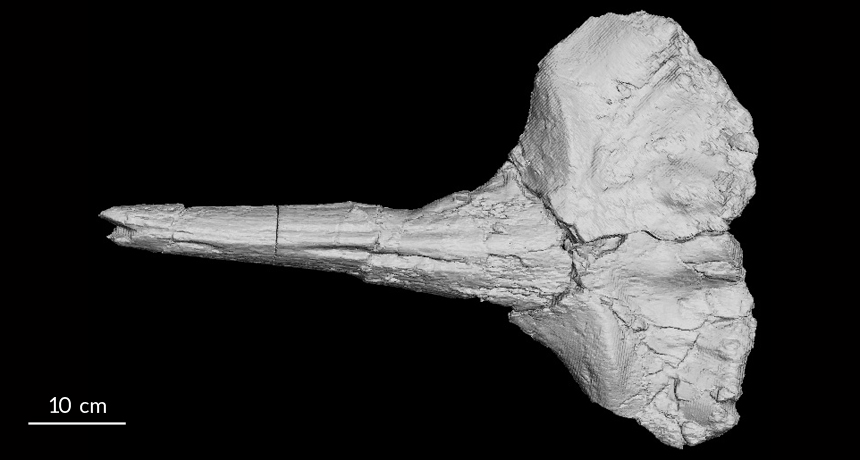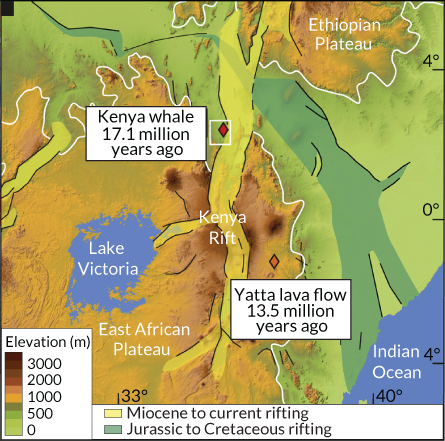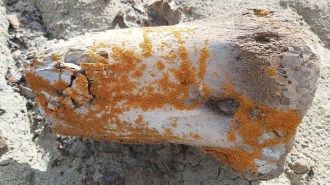Rise of East African Plateau dated by whale fossil
Old bones’ elevation constrains timing of uplift that influenced human evolution

STUCK UP A beaked whale that got stuck in a river 17 million years ago is helping to pinpoint when the East African Plateau began to rise.
Matthew Colbert/University of Texas at Austin








